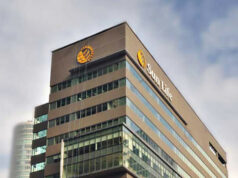By Jochebed B. Gonzales, Senior Researcher
YIELDS saw mixed movements last week as investors priced in the escalating trade war between the US and China and after domestic inflation reached a fresh five-year high.
Prices rose as yields on government securities dipped by 6.16 basis points (bps) on the average week on week, data from the Philippines Dealing and Exchange Corp. as of July 6 showed.
“There were two main factors that affected yields [last] week: the US-China trade war and the country’s higher-than-expected inflation,” said Land Bank of the Philippines (LANDBANK) market economist Guian Angelo S. Dumalagan.
“The influence of lingering trade tensions more than offset the impact of the country’s upbeat inflation data, resulting in an overall downward bias in interest rates,” he added.
Last week, the US began slapping 25% customs duties on $34 billion worth of Chinese commodities to which China responded by also imposing 25% border tax on the same amount of American goods that enter their country.
Meanwhile, domestic prices rose at a rate fastest in at least five years in June, the Philippine Statistics Authority reported on Thursday. The 5.2% headline print was beyond market and government expectations.
“Last month’s higher-than-expected inflation increased the yields of some tenors. While market participants expected inflation to pick up, many were surprised that inflation breached the BSP’s forecast range for the month, an occurrence which increases the chances of more rate hikes from the BSP this year,” said Mr. Dumalagan.
Also last week, the Bureau of the Treasury (BTr) rejected all bids for the reissued 10-year bond after investors demanded higher rates for the said tenor. The offer was also undersubscribed, attracting only P14.84 billion in tenders against the P15 billion programmed by the government.
“The 10-year auction rejection due to elevated bids and the higher than expected CPI (consumer price index) data at 5.2% versus market consensus at 4.8% led to more defensive levels and greater selling interest from end clients and market participants,” said Carlyn Therese X. Dulay, first vice-president and head of institutional sales at Security Bank Corp.
A bond trader agreed, saying some investors had “unloaded” after inflation was “way too far” from market expectations.
At the secondary market on Friday, the yield on the 91-day Treasury bill (T-bill) saw the steepest decline, losing 64.32 bps to close with 3.2639%.
It was followed by the 10-year Treasury bond (T-bond) which shed 6.69 bps to fetch 6.3548%. Yields on the three- and four-year tenors decreased by 4.57 and 2.32 bps, respectively, to 4.9766% and 5.6536%, while that of the 91-day T-bill dipped 1.99 bps to 3.8254%.
On the other hand, ending the week with gains were the 364-day T-bill and the two-, five-, seven- and 20-year T-bonds which went up 8.83 bps, 2.17 bps, 2.80 bps, 4.26 bps and 0.18 bp, respectively, to finish with 4.5625%, 4.8059%, 5.79%, 6.2908% and 7.3625%.
This week, the market will take its cue from the results of the US Bureau of Labor Statistics employment survey for the month of June, said Security Bank’s Ms. Dulay.
LANDBANK’s Mr. Dumalagan said players will also monitor external developments, particularly in the US and China.



